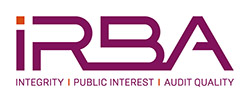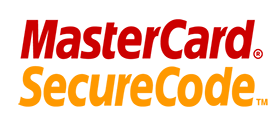IRBA Inspections Report shows decline in audit quality
|
Johannesburg, Thursday, March 16, 2017. The Independent Regulatory Board for Auditors (IRBA) today released its 2016 Public Inspections Report which reflects on key inspection findings recorded over the financial year ended March 31, 2016. The report analyses a total of 20 audit firm and 237 audit inspections based on the formal decisions of the Board’s independent Inspections Committee. There is an overall regression in the inspection results compared to the previous year, with the number of unsatisfactory inspections of audit firms increasing by 27% and the number of unsatisfactory engagement inspections increasing by almost 50%, based on selected inspections performed. These findings are in line with the global inspections survey results issued by the Independent Forum of Audit Regulators (IFIAR) on March 3, 2017, of which South Africa is one of more than 50 members. The IFIAR’s latest annual Inspection Findings Survey shows a slight decline in inspection findings of six large global network firms. However, the high rates of findings continue to be of concern to regulators. The Survey continues to show a lack of consistency in the execution of high quality audits and point to the continued need to address firm-wide systems of quality control, including in the critical area of auditor independence. The Survey noted similarities in the nature and extent of findings compared to the previous year (2015). Many of the selected inspections by the IRBA showed one or more significant findings with 15% (2015: 16%) of firms and 14% (2015: 6%) of engagement partners being referred by the Inspections Committee to the Investigating Committee of the Board. These referrals were as a result of fundamental or continued noncompliance with international auditing and financial reporting standards, the professional code or legislative requirements. The nature of these findings are also aligned to the IFIAR Survey findings in the critical area of firm-wide quality control where it had noted that too many audit firms continue to have high rates of inspection findings. “We have expanded our capacity and expertise to focus our resources on audits of entities where there is a greater element of public interest and risk. The size and complexity of these audits demanded more time and resources than before which resulted in fewer but more in-depth inspections being performed. Although fewer inspections were performed compared to last year, there was a 41% increase in the total number of significant findings raised on engagement inspections.” says Imre Nagy, IRBA Director: Inspections. The auditing profession is one of the few professions that is inspected on a regular basis. According to Bernard Agulhas, IRBA Chief Executive Officer, “Inspections and regulation are not only critical to ensure that the highest standards are maintained in a profession, but also provide the public and investors with the confidence that they can rely on the work of auditors. Confidence stimulates investment, and investment creates employment and growth,” says Agulhas. The IRBA performs inspections on selected firms to evaluate the design and effectiveness of their quality control policies and procedures, including their performance on a selection of assurance engagements. The inspection process focuses on high-risk audit areas or areas where deficiencies could potentially create risks to the public if not identified or appropriately responded to by the auditor. The key quality control areas focussed on during firm inspections were leadership responsibilities, ethical requirements including independence, engagement performance and monitoring. In terms of the practices of firms, a deficiency of alignment of firm methodologies to the standards as well as an observed lack of professional scepticism are two areas of concern. According to Nagy, in response to the 2013 World Bank recommendations in its Report on the Observance of Standards and Codes (ROSC) and concerns regarding inspection results, the IRBA has implemented increasingly robust measures, that are aimed at prompting auditors to achieve consistent sustainable high audit quality and produce reliable audit reports on financial information. This has meant going a step further, without compromising its own independence, by implementing a new Remedial Action Process that is aimed at engaging more regularly with those firms and practitioners who have shown deficiencies in their firms’ quality control policies and procedures or audit engagement files. One of the IRBA’s objectives is to promote continuous improvement in audit quality and investor confidence by encouraging auditors to buy into the regulatory monitoring process in a constructive way and take responsibility for audit quality in their firms. “The Remedial Action Process is part of the IRBA’s commitment to ensure that audit firms and practitioners promptly identify and address the underlying root causes of the inspection deficiencies that were raised during an inspection,” says Nagy. In addition, the firms and auditors must submit a remedial action plan and a written undertaking that acknowledges that they will address all audit deficiencies reported to them. The IRBA has actively engaged with 72% of inspected auditors that received unsatisfactory inspection results during the year, especially where the root causes or remedial plans were found to be insufficient or inappropriate. While the primary responsibility for high audit quality remains with the auditor, the IRBA is committed to engage other role players in the financial reporting sector – including other regulators, audit committees, internal auditors, specialists, consultants and management – to appreciate the importance of their respective roles in maintaining audit quality. “The independent audit remains a critical component in providing assurance and confidence to investors and other interested parties, that the management of assets entrusted to them, have been properly accounted for and reported,” concludes Agulhas. Ends More about the IRBA: The IRBA is a public protection statutory body established to protect the financial interests of the public by ensuring registered auditors and their firms deliver services of the highest quality. It upholds audit firm independence to ensure that audit quality is such that it enhances the accuracy and credibility of financial performance reporting. In this way, the IRBA has an important role to play in building the reputation of South Africa as an investment market for both local and global investors and driving economic growth for the country. As an internationally recognised regulator of the auditing profession and other assurance services relevant to the South African environment, it has been recognised by the World Economic Forum as number one for the strength of auditing and reporting standards for seven consecutive years for the strength of its audit controls and standards. The IRBA also registers suitably qualified accountants as auditors, who must adhere to the highest ethics standards, and promotes the auditing profession through the effective regulation of assurance conducted in accordance with internationally recognised standards and processes.
|





